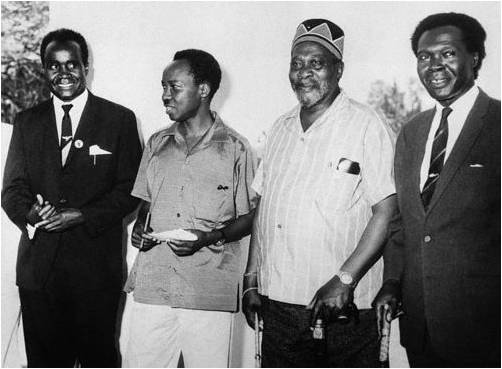Introduction
What is Pan Africanism?
Much water has passed through the bridge. Many songs and slogans have been sung, all in the name of pan Africanism. Over 2000 years have passed since the first Pan African conference in London yet no one seems to understand the concept of Pan Africanism. Many people including our detractors have turned Pan Africanism to mean anything including African racism. What does Pan Africanism really mean? Many intellectuals have tried to give schorlarly definition of Pan Africanism though more needs to be done to understand it better.
Pan Africanism refers to a strong attachment, which all blacks have towards the African continent, African culture, African Unity and independence. It is an expression of a desire by all Africans to revive their culture, regain their dignity, independence and attain economic advancement.
Pan-Africanism is a philosophy that is based on the belief that African people share common bonds and objectives and that advocates unity to achieve these objectives. In the views of different proponents throughout its history, Pan-Africanism has been conceived in varying ways. It has been applied to all black African people and people of black African descent; to all people on the African continent, including nonblack people; or to all states on the African continent.
The formal concept of Pan-Africanism initially developed outside of Africa in the late 19th and early 20th centuries. It developed as a reaction to the impact of European colonialism in Africa on peoples of African descent. In the mid-20th century, activists in Africa adopted Pan-Africanism as a rallying cry for independence from colonial rule. Some African Pan-Africanists sought to unite the continent as one independent nation.
From these origins and objectives, Pan-Africanism developed in two basic forms. In one form, known as Continental Pan-Africanism, it advocates the unity of states and peoples within Africa, either through political union or through international cooperation. In its other, broader form, known as Diaspora Pan-Africanism, it relates to solidarity among all black Africans and peoples of black African descent outside the African continent. Developed and interpreted by thinkers, authors, and activists around the world, Pan-Africanism remains a significant force in global politics and thought.

As
remarked once by Martin Luther King Jr. "history cannot ignore W.E.B.
DuBois because history has to reflect truth and Dr. DuBois was a tireless
explorer and a gifted discoverer of social truths. His singular greatness lay
in his quest for truth about his own people. There were very few scholars who
concerned themselves with honest study of the black man and he sought to fill
this immense void. The degree to which he succeeded disclosed the great
dimensions of the man." He was an Afro-centric historian, an erudite black
scholar (first black man to earn Ph.D from the prestigious Harvard
University),Socio-political activist and a great philosopher.
Pan-Africanism - the movement towards African unity - has suffered severe setbacks as well as achieving some successes in the quarter of a century since Ghana's independence. In the forefront of the campaign for African unity was Kwame Nkrumah. His strategy of a continental-union government turned out to be unacceptable to most of the African states that subsequently achieved their own independence. These considered his strategy to be too fast and impractical and preferred a gradualist or regional approach to African unity. Regardless, however, of the merits of either argument, is the fact that no continental-union government, based on either strategy, has been set up. Even leaving aside the goal of union government, there is another sense in which pan-Africanism may be said to have failed. With the egocentric demands of many independent states, the unanimity of purpose characteristic of pre-independence African nationalism is breaking down.

The type of pan-Africanism we are concerned with in this chapter is trans-Saharan pan- Africanism, which links in solidarity those who share the African continent across the Sahara desert - black Africans south of the Sahara and the Arabs and Berbers of the north. Trans-Saharan pan-Africanism insists on regarding the desert as a symbolic bridge rather than as a divide.
We will consider other dimensions of pan-Africanism concerned with 'pan-blackism' - the unity of black people across the Atlantic or throughout the world.
National Movements and New States in Africa